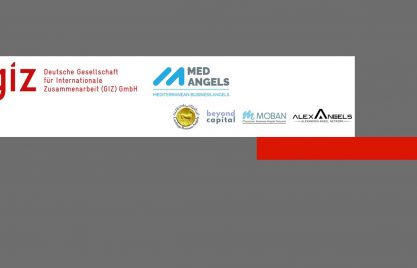Credit constraints remain a serious obstacle to the development, innovation and growth of small and medium-sized enterprises (SMEs) in in the Southern Mediterranean, despite the advanced maturity of some credit guarantee schemes (CGSs). Targeting the design of guarantee products and building the capacity of CGSs can help create better access conditions for SMEs. However, this requires sufficient knowledge of CGSs in the region in order to pursue sound and thus adequate courses of action. The EMGN survey makes precisely this important contribution.
Background and conception of the study
The study, “Assessing the Role of Credit Guarantee Schemes in the Southern Mediterranean – Pre and During COVID-19,” conducted by the Euro-Mediterranean Economists Association (EMEA) and the Euro-Mediterranean Network for Economic Studies (EMNES), examines and evaluates CGSs in the region in terms of type, objectives, outreach, design, and outcomes. The analyses are based on a survey conducted for the Euro-Mediterranean Guarantee Network (EMGN) in six countries in early 2020. Building on a previous study, this study updates and expands knowledge about CGSs in the region by highlighting and analysing the following topics:
- Overview of the macroeconomic and institutional conditions of the Southern Mediterranean countries and description of their advantages and disadvantages
- Preliminary assessment of the design and performance of the systems
- Recommendations for strengthening credit guarantee mechanisms in the region
- Analysis of the role of CGSs during the COVID-19 crisis
Interesting facts at a glance
The purpose of CGSs is to facilitate access to finance for credit-constrained SMEs by compensating a portion of the lender’s losses in the event of a loan default. Accordingly, guarantee schemes are a common means of overcoming deficits in the credit industry and thus an important tool for financial inclusion, business promotion, job creation, and ultimately economic development.
Limited access to formal financing remains a major obstacle to SME growth in the southern Mediterranean, although CGS portfolios have grown significantly over the past 10 years. Moreover, the COVID-19 pandemic has further increased the importance of CGSs. To mitigate the disastrous economic impact on SMEs, credit guarantees have been increasingly used as an intervention tool in some countries in the region. It has partly become one of the most important policy measures to support the financing needs of companies.
The fact that credit guarantees were able to come into play as a countercyclical intervention tool in these times of economic downturn is certainly also because most of the CGSs in the region are at least partially public. Mixed ownership structures reduce the risk of loss for private shareholders, which is why credit guarantees for credit-rationed groups does not have to run counter to a profit-oriented interest.
In this context, the study by Prof. Rym Ayadi and Mais Shaban emphasizes that further research and policy interventions should shed more light on the ability of GCSs to mitigate restrictions on access to finance during external shocks. For example, CGSs could improve the availability of information on borrowers and reduce the problem of information asymmetries, especially in economies with a weak institutional environment. In addition, by attending training and technical assistance, CGSs can build capacity on the supply and demand side of credit.
There are also opportunities for improvement regarding the structures and processes of CGSs. In this regard, the study highlights aspects such as capacity building, the establishment of counter-guarantee mechanisms, the measurement of additionality, the assessment of sustainability and digitization.
In order to significantly increase the proportion of SMEs in the banks’ loan portfolios within the region’s financial infrastructure, CGSs can be further strengthened, e.g. by combining the provision of guarantees with measures to build capacity. However, banking ownership and improving macroeconomic conditions will also be of paramount importance. Similarly, if carefully designed and implemented, counter-guarantee mechanisms, as a risk-sharing tool, have the potential to improve MSMEs’ access to finance and thus promote job creation in the southern Mediterranean.
As it has already become clear, the EMGN study gathers valuable insights on individual EMGN members, which in sum also open up a regional perspective. By contextualizing it with the prevailing macroeconomic and institutional conditions as well as the impact of the SARS-Cov-2 pandemic, the analysis also elaborates important opportunities for action.
Together with the joint founding promoters and cooperation partners within the EMGN Coordination Unit, namely the European Institute for the Mediterranean (IEMed) and the Euro-Mediterranean Economists Association (EMEA), the Deutsche Gesellschaft für Internationale Zusammenarbeit (GIZ) will work to translate the study’s findings and recommendations for action into targeted activities to best support EMGN and its members in achieving their visions and goals.
And as the study revealed, CGSs have good development potentials in various fields of action. Realizing these potentials can unleash necessary incentives for lenders to lend to smaller and riskier borrowers. Thereby, all intended actions should always be directed towards the same and unchanged goal:
Improve the financial inclusion of SMEs through better access to credit to foster their development, innovation and growth potential, contributing to job creation and wider social prosperity in the region.
By Sebastian Kausemann



